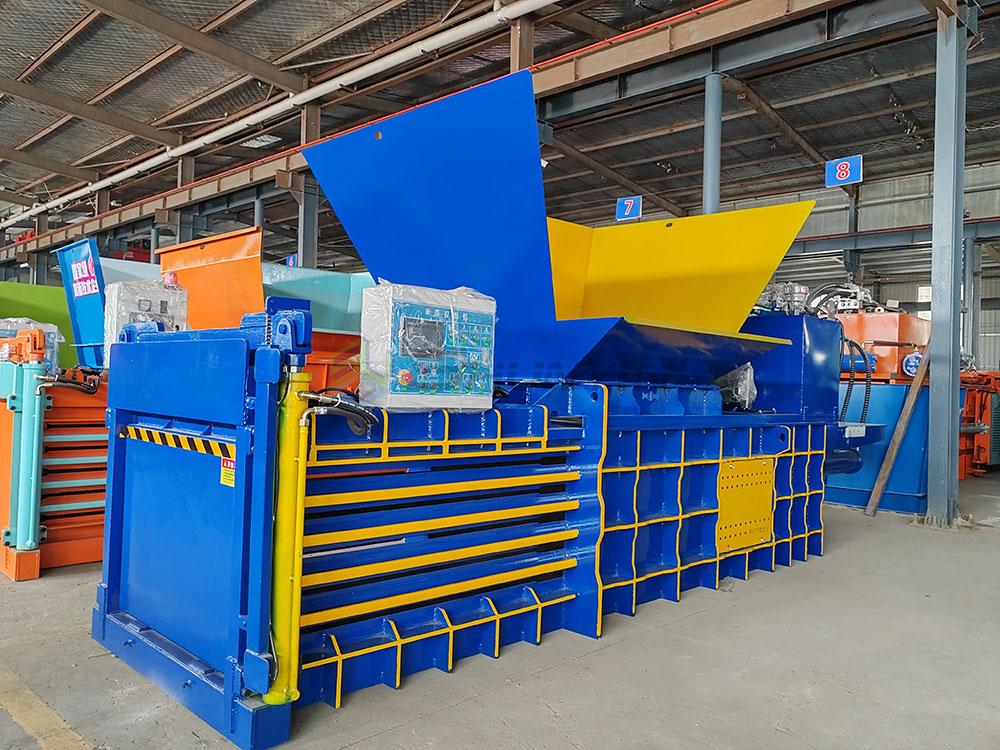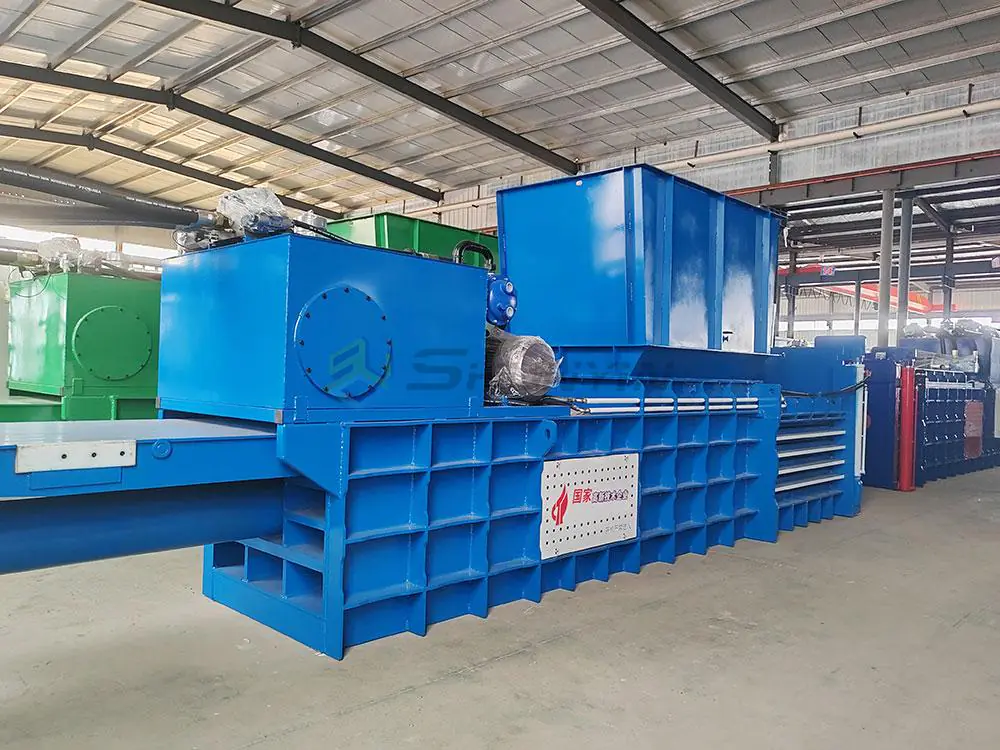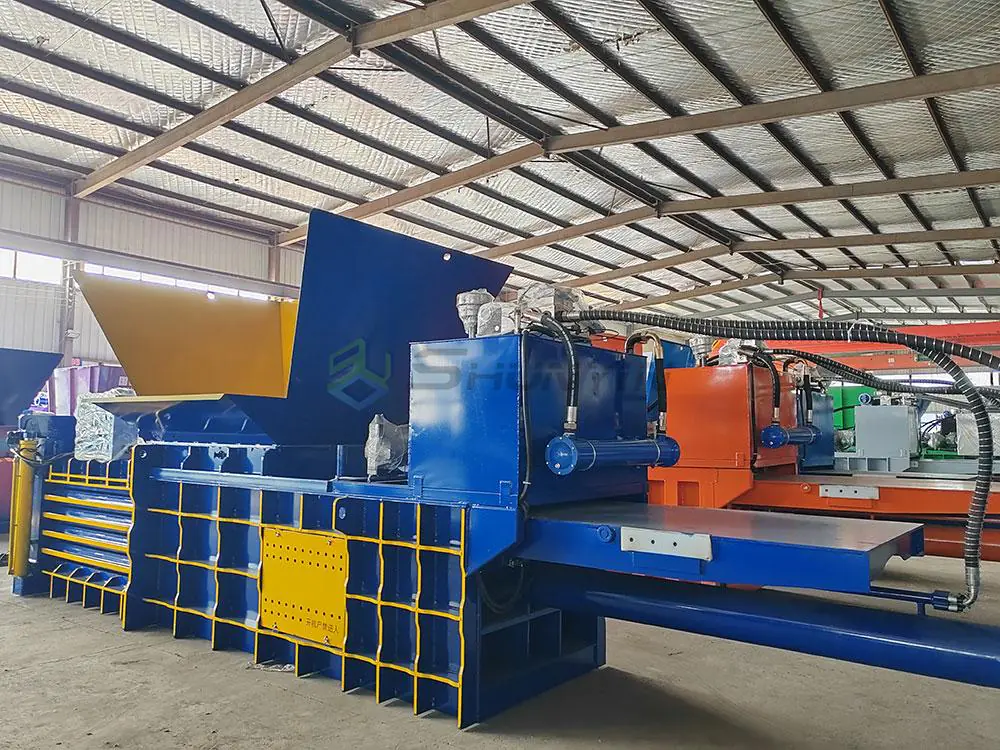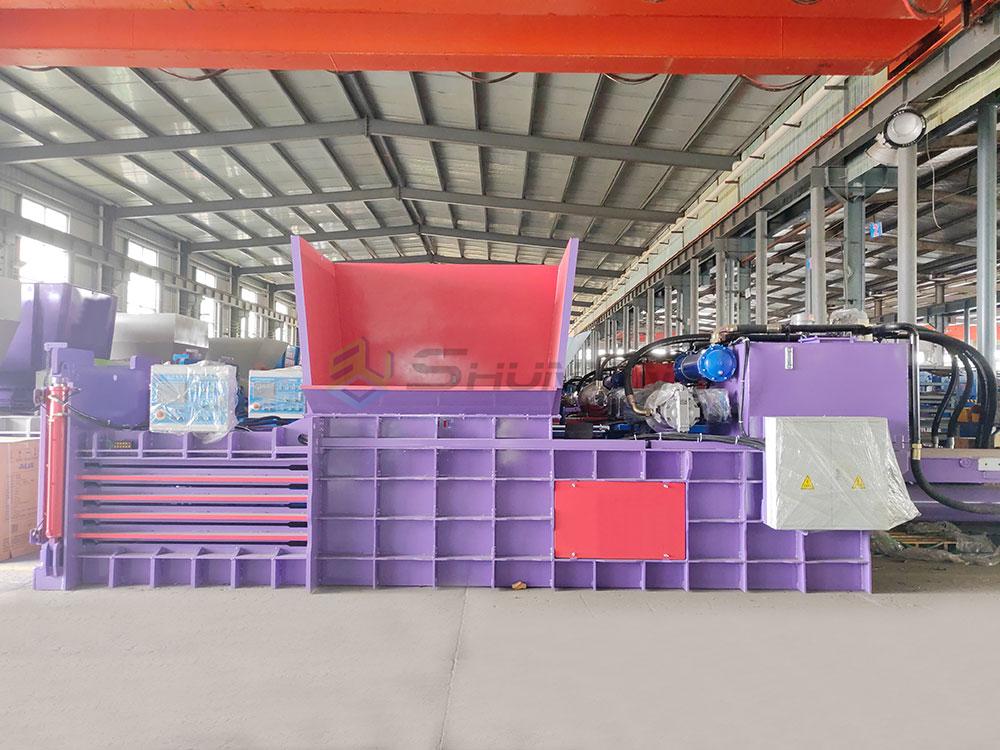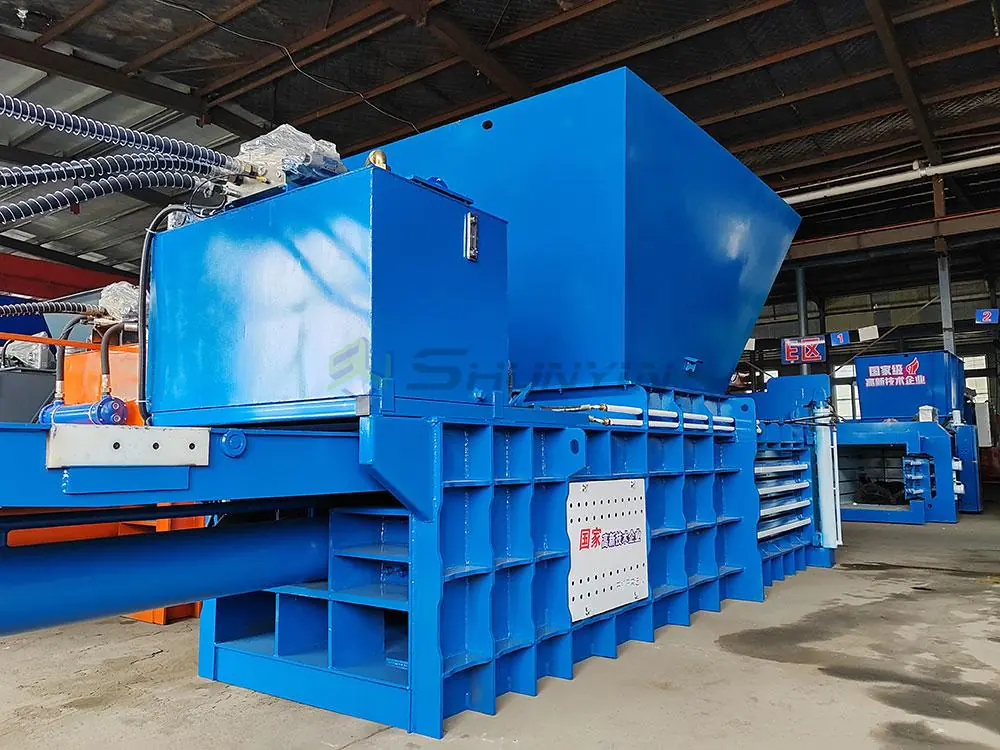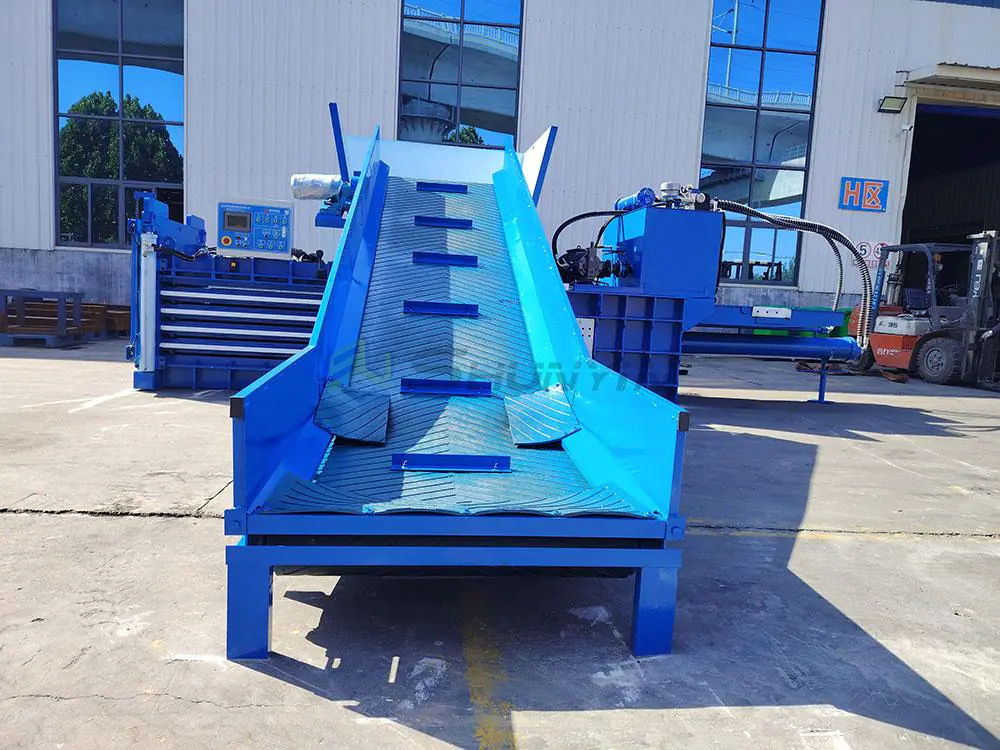
Managing cardboard waste efficiently is a challenge many businesses face today. Finding the right equipment can transform your waste management process, saving time and resources.
A cardboard baler is worth the investment if your business generates large amounts of cardboard waste. It helps reduce storage space, cuts disposal costs, and increases recycling efficiency. By compressing cardboard into compact bales, it’s easier to handle, transport, and sell for recycling. This leads to cost savings and a more sustainable operation.
I remember when we first struggled with inconsistent baler performance. It was frustrating until we discovered the right brands that made all the difference.
[Table of contents]
- How much do balers cost?
- Is a cardboard baler worth it?
- What is the price of automatic baler?
- How much does a recycling baler machine cost?
- Conclusion
How much do balers cost?
Balers typically range from $15,000 to $50,000, depending on the type, capacity, and features.

Understanding the cost of balers is essential for budgeting and making an informed investment in your waste management system.
Factors Influencing Baler Costs
- Type of Baler: Vertical, horizontal, and two-ram balers vary in price based on their design and functionality.
- Capacity: Higher capacity balers that can handle more waste per cycle generally cost more.
- Features: Advanced features like automatic tying, programmable controls, and enhanced safety mechanisms increase the price.
- Brand Reputation: Established brands with a reputation for quality and reliability may charge a premium.
- Customization: Tailored solutions to fit specific operational needs can add to the overall cost.
| Baler Type | Price Range | Features Included |
|---|---|---|
| Vertical Balers | $15,000 – $25,000 | Basic compression, manual tying |
| Horizontal Balers | $30,000 – $50,000 | High capacity, automatic tying, advanced controls |
| Two-Ram Balers | $40,000 – $60,000 | Dual compression, mixed material handling |
| Compact Balers | $10,000 – $20,000 | Space-saving design, lower capacity |
Cost-Benefit Analysis
While balers represent a significant investment, they offer long-term savings by reducing waste disposal costs, optimizing storage space, and improving recycling efficiency.
| Aspect | Manual Baler | Automatic Baler |
|---|---|---|
| Initial Cost | Lower | Higher |
| Labor Requirements | Higher | Lower |
| Efficiency | Moderate | High |
| Maintenance Costs | Lower | Higher |
Financing Options
Many manufacturers and suppliers offer financing plans or leasing options to make purchasing a baler more manageable. Exploring these options can help spread out the costs without compromising on quality.
Is a cardboard baler worth it?
Yes, a cardboard baler is worth the investment as it streamlines waste management, reduces costs, and enhances recycling efforts.

Implementing a cardboard baler can transform how you handle waste, providing significant operational and environmental benefits.
Benefits of a Cardboard Baler
- Cost Savings: Reduces waste disposal fees and transportation costs by minimizing waste volume.
- Space Efficiency: Compacts cardboard, saving valuable storage space.
- Environmental Impact: Promotes recycling and reduces landfill usage, contributing to sustainability.
- Operational Efficiency: Automates the baling process, saving time and labor.
| Benefit | Description |
|---|---|
| Cost Savings | Lower disposal and transportation costs. |
| Space Efficiency | Less space needed for storing waste. |
| Environmental Impact | Supports eco-friendly recycling practices. |
| Operational Efficiency | Streamlines waste management processes. |
Real-World Application
At Shunyin, implementing a cardboard baler has allowed us to handle waste more effectively, leading to a cleaner workspace and lower operational costs. One of our clients reported a 30% reduction in waste disposal fees within the first year of using our baler.
Choosing the Right Baler
Selecting a baler that fits your business size and waste volume is crucial. Consider factors like machine size, capacity, and maintenance requirements to ensure you make the best choice for your operations.
What is the price of automatic baler?
Automatic balers typically range from $25,000 to $60,000, depending on their features and capacity.

Evaluating the cost of automatic balers helps determine their value for your business operations and whether they fit within your budget.
Features of Automatic Balers
- Automatic Feeding: Streamlines the baling process by continuously feeding materials.
- Advanced Controls: Enhance precision and efficiency with programmable settings.
- Safety Mechanisms: Protect operators and equipment with advanced safety features.
- Durability: Built to withstand heavy-duty use in industrial environments.
| Feature | Basic Automatic Baler | Advanced Automatic Baler |
|---|---|---|
| Feeding System | Semi-automatic | Fully automatic |
| Control Systems | Basic controls | Integrated smart controls |
| Safety Features | Standard safety | Enhanced safety protocols |
| Capacity | Up to 1000 lbs | 1000+ lbs |
Cost-Benefit Analysis
While automatic balers have a higher upfront cost, their efficiency and reduced labor requirements can lead to significant savings over time.
| Aspect | Manual Baler | Automatic Baler |
|---|---|---|
| Initial Cost | Lower | Higher |
| Labor Requirements | Higher | Lower |
| Efficiency | Moderate | High |
| Maintenance Costs | Lower | Higher |
Long-Term Investment
Investing in an automatic baler can enhance productivity and reduce operational costs in the long run. Businesses that handle large volumes of waste often find automatic balers to be a worthwhile investment due to their high efficiency and reliability.
How much does a recycling baler machine cost?
Recycling baler machines typically cost between $20,000 and $70,000, depending on their type, capacity, and features.

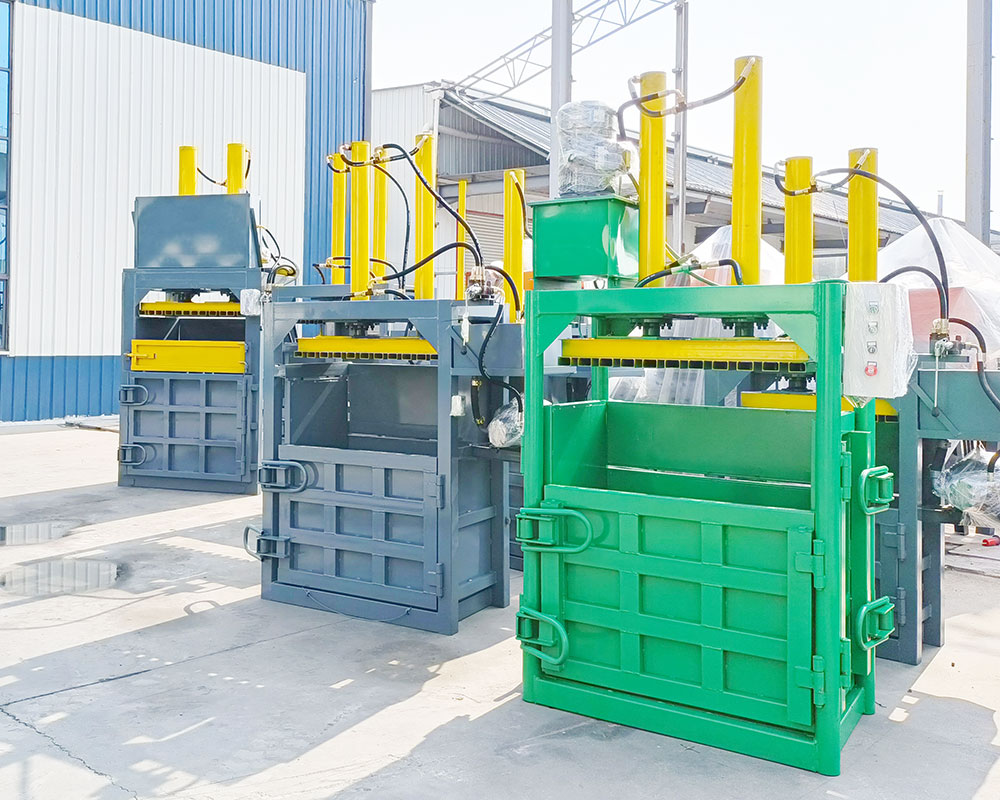
Understanding the cost range of recycling baler machines is essential for planning your investment and budgeting effectively.
Types of Recycling Balers and Their Costs
- Vertical Balers: Generally less expensive, ranging from $15,000 to $30,000, suitable for smaller operations.
- Horizontal Balers: More costly, ranging from $30,000 to $60,000, ideal for high-volume waste management.
- Two-Ram Balers: Among the most expensive, costing up to $70,000, designed for handling mixed materials and large volumes.
| Baler Type | Price Range | Best For |
|---|---|---|
| Vertical Balers | $15,000 – $30,000 | Small to medium-sized operations |
| Horizontal Balers | $30,000 – $60,000 | High-volume waste management |
| Two-Ram Balers | $40,000 – $70,000 | Mixed materials, large-scale operations |
Cost Factors
- Material Compatibility: Balers that can handle a wider range of materials may cost more.
- Automation Level: Fully automated balers with advanced controls are pricier than semi-automatic models.
- Durability and Build Quality: High-quality materials and robust construction increase the cost.
- After-Sales Support: Manufacturers offering comprehensive support and maintenance services may charge a premium.
Financing and Leasing Options
Many suppliers offer financing or leasing options to help businesses manage the upfront costs of recycling baler machines. These options can make it easier to invest in high-quality equipment without a significant initial outlay.
| Option | Description |
|---|---|
| Financing Plans | Spread the cost over a set period with interest |
| Leasing | Rent the equipment for a specified time |
| Leasing to Own | Lease with an option to purchase at the end |
Conclusion
Investing in a cardboard baler is a strategic decision that can significantly enhance your waste management processes, offering efficiency, cost savings, and environmental benefits. Understanding the costs, benefits, and different types of balers ensures you make an informed choice that aligns with your business needs. At Shunyin, we provide top-quality, customizable balers to support your operations efficiently and sustainably.
For more information, feel free to reach out to me at [email protected] or visit our website https://lemonchiffon-shark-638535.hostingersite.com/.


